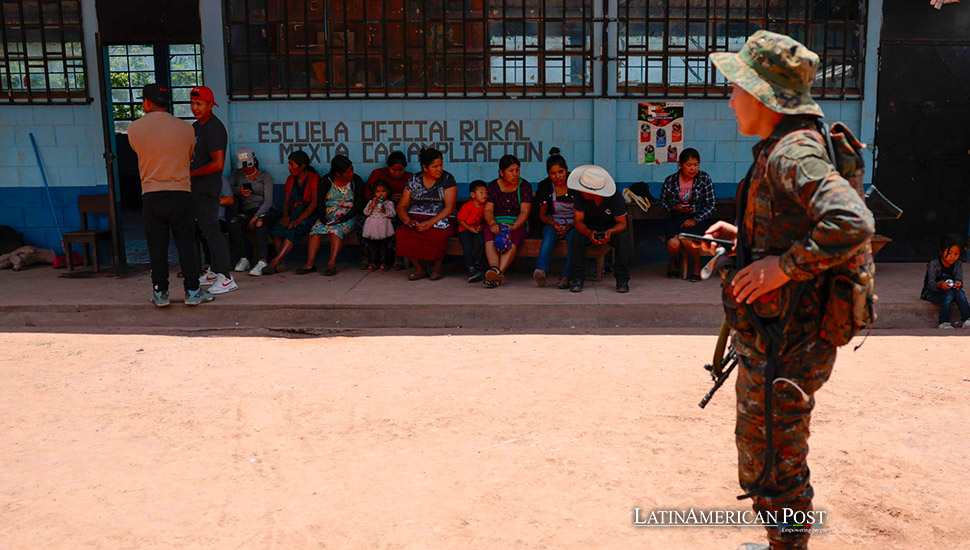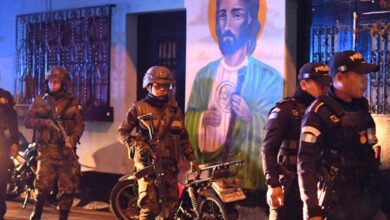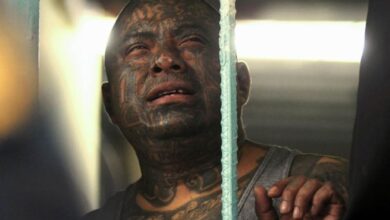Over 500 Mexicans Flee to Guatemala Amid Violent Clashes in Chiapas

Last week, more than 500 people from southern Mexico sought refuge in neighboring Guatemala due to escalating violence between criminal groups fighting over drug trafficking routes and other crimes, according to authorities from both nations.
Last week, the tranquil landscapes of southern Mexico have been shattered by violent clashes between rival criminal groups vying for control over lucrative drug trafficking routes. The violence has forced more than 500 people to flee across the border into Guatemala, highlighting the growing insecurity in the region. The Guatemalan Migration Institute (IGM) reported a surge of displaced men, women, children, and older people seeking safety in Cuilco, which borders the Mexican state of Chiapas.
The displacements began earlier last week as communities in Chiapas became battlegrounds for armed groups. Videos and images shared on social media over the weekend depicted harrowing scenes of residents fleeing for their lives amidst gunfire. The IGM stated that these families were “forcibly displaced into Guatemala by the violence that plagues the south of the neighboring country.” The ongoing conflict has resulted in at least 19 violent deaths, adding to the region’s growing toll of human suffering.
A source with knowledge of the situation, who requested anonymity for security reasons, revealed that Mexican criminal groups linked to Guatemalan organizations are forcibly recruiting youths as young as 15 into their ranks. “Many fled to Guatemala because it is closer, but hundreds more sought refuge in other communities in Chiapas,” the source added. This forced recruitment exacerbates the humanitarian crisis, as families are torn apart and young lives are thrust into violence.
Efforts to Support Displaced Families
Local authorities, including Guatemalan President Bernardo Arevalo, are coordinating efforts to support the affected Mexican families. President Arevalo emphasized the need for international cooperation to address the refugees’ immediate needs and stabilize the region. In Chiapas, the security ministry has deployed military forces to quell the violence and restore order. However, the situation remains volatile, with ongoing skirmishes and the constant threat of further displacement.
The Chiapas government reported that another 107 vulnerable individuals from the Tzanembolom community are under state protection. This measure aims to ensure the safety of those in the conflict zone. Yet, the scale of the crisis underscores the urgent need for a comprehensive response to address both immediate humanitarian needs and the underlying causes of the violence.
Pedro Faro, coordinator of the advocacy area of the Fray Bartolome de Las Casas Human Rights Center in Chiapas, highlighted the extent of the displacement crisis. “From 2023 to last June, some 15,780 people have been documented as having been forcibly displaced in the state, mainly by armed violence,” Faro said. This alarming statistic reflects the pervasive impact of criminal activities on the civilian population.
Cross-Border Criminal Networks
The violence in Chiapas is not an isolated incident but part of a broader pattern of cross-border criminal activities. Criminal groups in southern Mexico have established deep connections with organizations in Guatemala, facilitating the smuggling of drugs, weapons, and other illicit goods. These networks have become increasingly sophisticated, making it challenging for law enforcement to dismantle them.
The anonymous source from Chiapas highlighted the role of these networks in perpetuating the cycle of violence. “The link between criminal groups in Mexico and Guatemala is strong. They collaborate closely, making it difficult to combat the problem on either side of the border,” the source told Reuters. This collaboration has resulted in a transnational threat that requires a coordinated response from both Mexican and Guatemalan authorities.
The forced displacement of families underscores the human cost of these criminal activities. Many displaced individuals have left their homes, livelihoods, and communities in search of safety. Their plight calls for urgent humanitarian assistance and long-term solutions to address the root causes of the violence.
The Need for International Cooperation
As the situation in Chiapas unfolds, the need for international cooperation becomes increasingly apparent. The influx of refugees into Guatemala strains local resources and infrastructure. Guatemalan authorities and international humanitarian organizations are working to provide shelter, food, and medical care to displaced families.
President Arevalo has called for greater international support to address the crisis. “We need a coordinated effort to provide immediate relief to those affected and to address the underlying issues driving the violence,” he said. This call to action highlights the importance of a comprehensive approach that includes humanitarian aid, law enforcement cooperation, and development initiatives to stabilize the region.
The crisis in Chiapas also draws attention to the broader challenges faced by Latin American countries grappling with organized crime and violence. Similar situations have been documented in other parts of the region, where criminal groups exploit weak state institutions and socio-economic vulnerabilities to expand their influence. Addressing these challenges requires a multi-faceted strategy that includes strengthening governance, promoting economic development, and enhancing security measures.
The displacement of over 500 people from southern Mexico to Guatemala amid violent clashes between criminal groups underscores the urgent need for a coordinated response to address the humanitarian and security crisis in the region. The plight of these families highlights the human cost of organized crime and the pervasive impact of violence on communities.
Efforts to support the displaced families and stabilize the region require international cooperation and a comprehensive approach that addresses immediate needs and long-term solutions. As the situation evolves, the international community must remain vigilant and committed to supporting those affected by this crisis.
Also read: Rescue Highlights The Perilous Journey of Venezuelan Migrants in Mexico
The events in Chiapas serve as a stark reminder of the broader challenges faced by Latin American countries in combating organized crime and violence. By working together, governments, international organizations, and civil society can develop effective strategies to address these challenges and promote regional stability and security.





